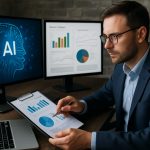AI Advancements, Market Shifts, and Strategic Insights | Comprehensive Industry Report
Unveiling the Next Era of Artificial Intelligence: Breakthroughs, Barriers, and Strategic PathwaysGlobal AI Market Landscape and Key DriversEmerging Technologies and Innovation FrontiersIndustry Players, Partnerships, and Competitive DynamicsProjected Expansion and Investment…
Iran’s Battle Against Starlink: The High-Stakes Fight for Unfiltered Connectivity
Inside Iran’s Crackdown on Starlink: The Surprising Resilience of Satellite Internet and the Struggle for Digital FreedomSatellite Internet Penetration and Demand in Restrictive EnvironmentsAdvancements in Satellite Communications and Evasion TacticsKey…
Manila Property Market Insights: Emerging Trends, Forecasts & Top Neighborhoods
Unveiling Manila’s Real Estate Evolution: Surprising Shifts, Bold Predictions, and Neighborhoods on the RiseCurrent State of Manila’s Real Estate MarketInnovations and Digital Disruption in PropertyKey Players and Market DynamicsProjected Growth…
Post-Quantum Cryptographic Solutions Market 2025: Rapid Adoption Drives 38% CAGR Through 2030
Post-Quantum Cryptographic Solutions Market Report 2025: In-Depth Analysis of Technology Trends, Competitive Dynamics, and Global Growth Projections. Discover How Quantum-Resistant Security is Shaping the Future of Data Protection. Executive Summary…
America’s Surprising Zip Code Secrets: What Your Zip Says About You in 2025
Discover how your zip code can decide your future, life opportunities, and even your well-being in 2025’s hyper-connected America.
Deepika Padukone Stuns as Warrior Queen: AI Witcher Image Goes Viral After Atlee Casting Bombshell
Deepika Padukone’s AI Witcher look takes the internet by storm after her fiery casting in Atlee’s much-awaited film with Allu Arjun.
Dead Sea Scrolls Shocker: New AI Reveals Manuscripts Are 100 Years Older Than Previously Thought
AI-powered analysis just rocked biblical archaeology: Dead Sea Scrolls could be a century older than experts believed. Details inside.
Breakthrough Tech: AI and Facial Scans Could Replace Stressful Heart Disease Tests
New AI-driven facial thermal imaging vastly outperforms old-school methods in detecting heart disease—here's what you need to know for 2025.
The Lab Revolution: New Imaging System Breaks Speed and Clarity Records in High-Throughput Screening
The next wave in lab automation is here. Discover how the ImageXpress® HCS.ai system is accelerating breakthroughs for science in 2025.
AMC Networks Takes Bold Leap Into AI, Taps Runway to Revolutionize TV Marketing and Production
How AMC Networks Is Betting Big on AI to Transform Hollywood in 2025—And Why It Could Change TV Forever AMC Networks partners with AI disruptor Runway to slash costs, reinvent…



